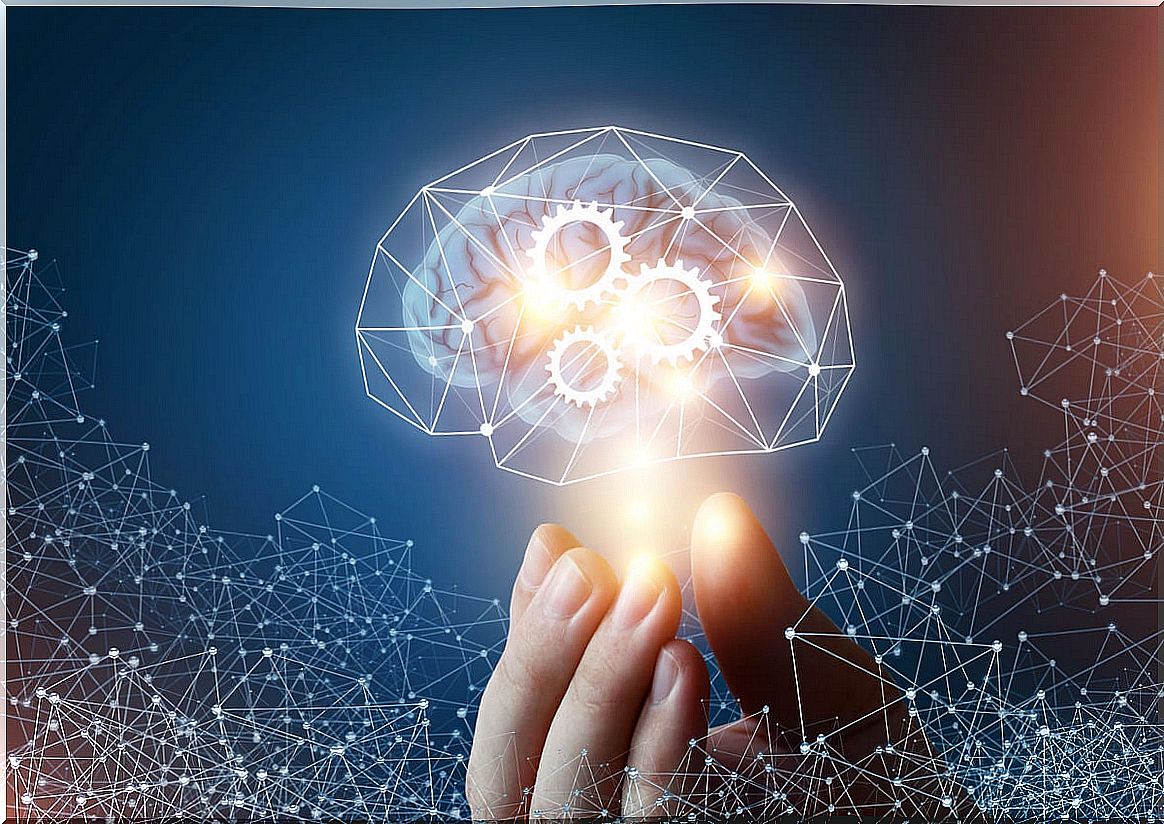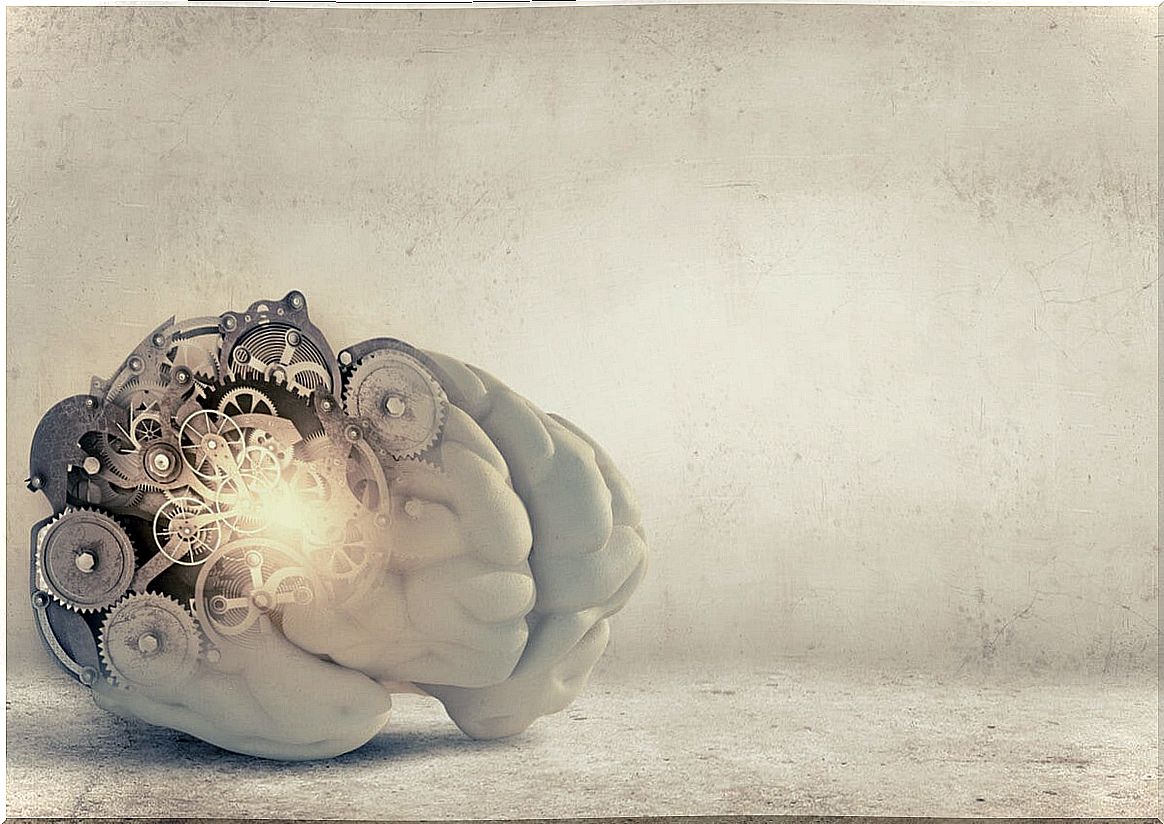The 4 Differences Between Fluid Intelligence And Crystallized Intelligence

Intelligence is a psychological construct that refers to the ability to solve problems, learn, understand, reason … However, there is no single type of intelligence, but many of them. In this article, we analyze the 4 differences between fluid intelligence and crystallized intelligence.
There are multiple definitions for intelligence, although roughly we can say that intelligence allows us to adapt to the environment and survive. But what do each of these types of intelligence refer to?
In a very general way: fluid intelligence is one that allows us to solve problems spontaneously and agilely without prior knowledge mediating. On the other hand, crystallized intelligence encompasses all those knowledge already learned that also allow us to solve problems. In this second case, we are talking about culture in general; of everything we learn during life. Find out more about these two types of intelligence!
Fluid intelligence and crystallized intelligence: what are they?
Fluid intelligence refers to the ability we have to think in an abstract way, and also to adapt and face new situations without previous experience being a determining help for it.
This type of intelligence has to do with agility, quick response to problems and the ability to improvise and solve complex situations, but without the need to resort to prior knowledge, already consolidated.
It is an intelligence similar to what most of us intuitively understand by intelligence (or the first that comes to mind when we talk about this concept). For example, when we say that someone is alive, smart, smart, etc.

Crystallized intelligence: everything learned
On the other hand, crystallized intelligence is everything that has to do with what has already been learned: experiences, knowledge, languages, data … Thus, this type of intelligence encompasses already consolidated knowledge.
Crystallized intelligence is more “academic”; in the sense that it develops as we learn at school, for example. It also has to do with general culture, with what we already know because we have learned it, memorized it or integrated it.
In addition, crystallized intelligence includes strategies. In this way, it integrates the capacities, knowledge and skills that make up our cognitive development, through our learning history.
The 4 differences between fluid intelligence and crystallized intelligence
In differential and personality psychology there are many authors who have tried to explain what intelligence consists of and for this they have chosen to divide their domains.
Fluid intelligence and crystallized intelligence were proposed in one of the most important models of intelligence: the Cattell-Horn theory. We tell you what are the 4 differences between fluid intelligence and crystallized intelligence most relevant.
Function
One of the main differences between fluid intelligence and crystallized intelligence has to do with their function. While fluid intelligence helps us solve novel situations or problems (without necessarily “needing” prior learning to solve them), crystallized intelligence allows us to gather information.
This last type of intelligence thus helps us to be more “wise” or cultured. In addition, it allows us to use that knowledge or previous experience to solve problems.
Evolution
Another of their differences has to do with their evolution. Thus, while fluid intelligence reaches its peak (maximum) in adolescence, crystallized intelligence always goes in crescendo, because we never stop learning (unless we suffer from some disease or pathology that prevents us, such as dementia or some kind of amnesia).
Of course, a clarification. It seems that fluid intelligence can continue to increase until the age of 40, although more slowly and progressively. This will also depend on each person.
Weight of genetics and the environment
The next of the differences between fluid intelligence and crystallized intelligence has to do with the weight of genetics and environment. Although both factors influence the two types of intelligence, the truth is that in fluid intelligence the weight of genetics is much greater.
That is why genetics have more weight in fluid intelligence. In addition, it is difficult to modify once it has reached its “peak” (as we said before, during adolescence). For its part, crystallized intelligence depends much more on the environment.
Moment of decline
The moment in which these intelligences begin to decline also differs. In the case of fluid intelligence, it begins to decline after age 40, and its decline accelerates after age 60.
In the case of crystallized intelligence, its decline varies greatly from one person to another (in cases of brain deterioration the decline is much more noticeable). However, if there is no brain damage, what usually happens is that people have the ability to continue learning even beyond the age of 70.

We never stop learning
Intelligence is highly influenced by genetics, especially fluid intelligence. However, it is also a skill that we can train and improve. For its part, crystallized intelligence does not depend so much on genetics, but rather on the environment.
Both types of intelligence increase especially during childhood and adolescence (the peak of fluid intelligence occurs in this developmental stage). Instead, crystallized intelligence tends to grow throughout life because we never stop learning.









